Environment
-
 Climate
ClimateClimate-cooling aerosols can form from tree vapors
Climate-cooling, cloud-seeding aerosols can form in the atmosphere without the sulfuric acid spewed from fossil fuel burning, new research suggests.
-
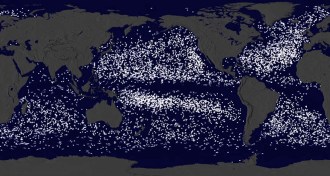 Oceans
OceansHere’s where 17,000 ocean research buoys ended up
A combined look at 35 years’ worth of ocean buoy movements reveals the currents that feed into ocean garbage patches.
-
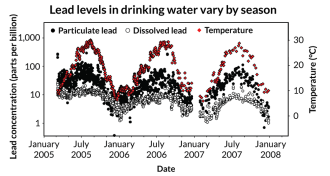 Environment
EnvironmentWhen measuring lead in water, check the temperature
Lead contamination in drinking water can be much higher during summer than winter, new research suggests.
-
 Environment
EnvironmentU.S. oil and gas boom behind rising ethane levels
Oil and gas operations on North Dakota’s Bakken shale are largely to blame for a recent rise in global emissions of the greenhouse gas ethane, researchers conclude.
-
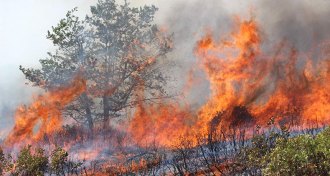 Climate
ClimateWildfire shifts could dump more ice-melting soot in Arctic
Wildfires will emit more soot into the air in many regions by the end of the century, new simulations show.
-
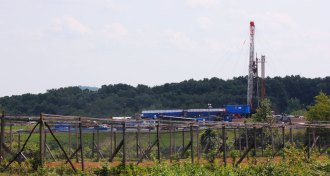 Environment
EnvironmentEPA boosts estimate of U.S. methane emissions
A new report by the U.S. Environmental Protection Agency revises the agency’s methane emission estimates upward by 3.4 million metric tons.
-
 Environment
EnvironmentEPA underestimates methane emissions
Methane estimates by the Environmental Protection Agency fail to capture the full scope of U.S. emissions of the greenhouse gas, studies show.
-
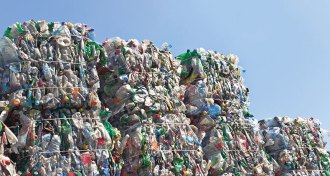 Microbes
MicrobesThis microbe makes a meal of plastic
A newly identified bacterium can break down plastic waste.
-
 Environment
EnvironmentDome effect leaves Chinese megacities under thick haze
Airborne black carbon lowers an atmospheric boundary, trapping pollution around major cities and worsening air quality, researchers propose.
-
 Quantum Physics
Quantum PhysicsFinding wonders in fat
In the latest issue of Science News, Editor in Chief Eva Emerson talks fat cells, thermodynamics, and lead poisoning.
By Eva Emerson -
 Animals
AnimalsParasites help brine shrimp survive toxic waters
When brine shrimp are infected with tapeworms, the tiny aquatic organisms survive better in warm waters and in those laced with toxic arsenic.
-
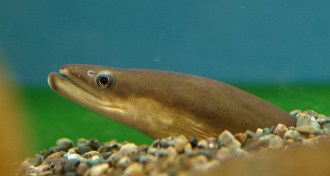 Environment
EnvironmentLow levels of radiation from Fukushima persist in seafood
Aquatic species in Japan contain low levels of radioactive cesium, but some freshwater species risk high contamination.